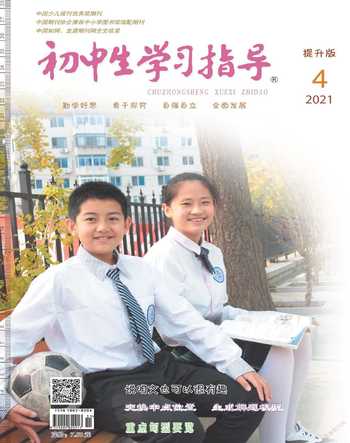语态错误大曝光
王嵩
英语分为主动语态和被动语态,在学习与使用中,如果不注意就会出现误用语态、误用构成、漏用词、误用词或词组等错误。下面把这些情况分别作示例解析,供同学们参考。
一、误用语态
练习:选择正确的答案
1. —Have all the students known that our class will visit the factory this afternoon?
—Yes, every student _____ about it.
A. tells B. told C. was told D. has told
2. —Dad, please open the door, it _____.
—OK, dear. I’m coming.
A. locks B. locked C. is locked D. was locked
3. The story _____ hundreds _____ years ago.
A. was happened; of B. happened; of C. was happened; × D. happened; ×
4. Everyone says the novel is worth _____ because it’s very interesting.
A. to read B. read C. reading D. to be read
简析:
1.常会有“人作主语用主动语态”的思维定式,从而误选主动语态。
2.本句为系表结构,而非被动结构。
3.用汉语思维选会选择A项。happen为不及物动词,没有被动语态。
4.此处为主动形式表被动意义。
答案:C、B、B、C。
主语是动作的执行者即谓语动作是主语发出的用主动语态;强调动作的承受者即谓语动作不是主语发出的、不知道或没有必要说明动作的执行者时用被动语态。
二、误用构成
练习:用所给词适当的形式填空
1. It (say) that over 20 people died in the big fire.
2. This song is often (sing) by children.
3. This dictionary mustn’t (take) away from the library.
4. The new computers (give) to the village school as presets last month.
解析:1.“据说”译为“It’s said that”,故应填is said。
2. sing的过去分词应为sung,故应填sung。
3. 含情态动词构成的被动语态形式为:情态动词 + be + 过去分词,应填be taken。
4. 应填一般过去时的被动语态即were given。
被动语态的构成不能缺“be”和“过去分词”任何一个,被动语态各种时態均取决于be的变化。
三、漏用词
练习:把下列句子改为被动语态
1. Someone bought him a present.
误:A present was bought him.
析:him后加for。带双宾语的主动语态变成被动语态时,当直接宾语作主语时,要在间接宾语前加介词“for”或“to”。如:
A present was given to everybody here. 这儿人人都给了一份礼物。
2. We often hear Ken apologize to his teacher.
误:Ken is often heard apologize to his teacher.
析:heard后加to。在see/ hear / feel / let / make等动词后,作“宾补”的不定式在主动语态下不带to,但变为被动语态后要还原to。如:
The man was made to pay for the lost book. 这个人要赔丢失的书。
3. We must take good care of the old man.
误:The old man must be taken good care.
析:care后加of。构成被动语态的动词短语是一个整体,不能省略动词后的介词或副词。如:
The letter was written to him. 这封信是写给他的。
四、误用词或短语
练习:翻译句子
1. 我习惯于起早。
误:I’m always used to get up early.
正:I’m always used to getting up early.
析:used to do sth.意为“过去常常做某事”,be used to doing意为“习惯于……”。如:
She used to drink a cup of tea before he had breakfast. 以前,她常在早餐前喝一杯茶。
2. 邮票是用来寄信的。
误:Stamps are used by sending letters.
正:Stamps are used to send / for sending letters.
Be used to do / for doing sth.均有“被用于……”之义,be used by意为“被……所使用”。
3. 中国共产党是1921年7月1日诞生的。
误:The Party was found on July 1st, 1921.
正:The Party was founded on July 1st, 1921.
析:found为find的过去分词,意为“找到”;而founded为found的过去分词,意为“建立”“成立”。

